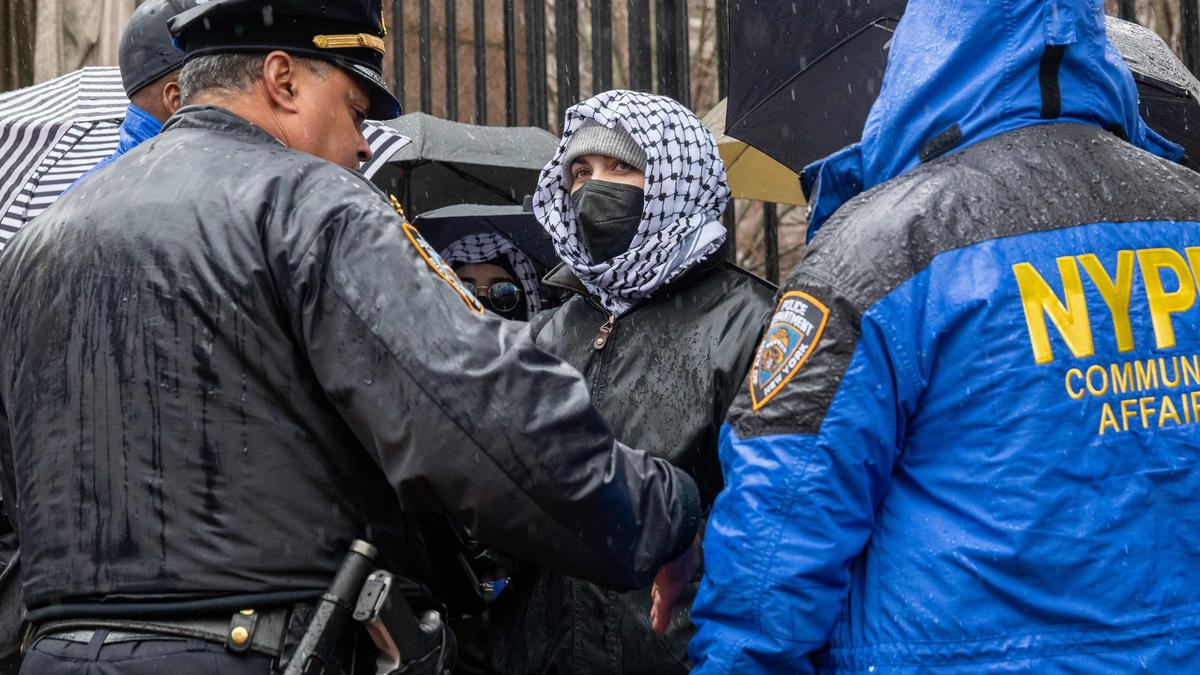
Columbia University’s compliance with Trump’s demands sets a precedent for other universities facing federal pressure Premium
The Hindu
Columbia University faces backlash for complying with Trump administration demands, impacting student activism and press freedom.
Days before Indian PhD scholar Ranjani Srinivasan studying at Columbia University chose to self-deport from the U.S. after learning her visa was revoked, three federal immigration agents showed up at the door of her university-affiliated housing. When she did not open, they showed up again the next day.
Their visit came just hours before Mahmoud Khalil, a former Columbia student also residing in campus housing, was detained and informed that his green card had been revoked.
Days later, immigration officials announced the arrest of a second individual linked to the pro-Palestinian protests at Columbia and the revocation of another student’s visa. Leqaa Kordia, a Palestinian from the West Bank, was taken into custody by immigration officers for overstaying her student visa, according to the Department of Homeland Security.
“Ms. Kordia’s visa was terminated in January 2022 due to ‘lack of attendance,’” the department stated, adding that she had previously been arrested for participating in protests in April 2024.
Columbia also expelled Grant Miner, president of the Student Workers of Columbia-United Auto Workers (SWC-UAW). Mr. Miner was removed just one day before the union was set to begin bargaining negotiations with the university. On the same day, Columbia’s University Judicial Board issued disciplinary rulings against students involved in the April 2024 occupation of Hamilton Hall. Columbia University Apartheid Divest, a student-led group, stated on Instagram that 22 students faced expulsions, suspensions, or degree revocations for their participation in pro-Palestinian demonstrations.
These measures have not been taken in isolation — they followed an ultimatum issued by the Trump administration to Columbia University laying out nine demands it must commit to by the end of business hours on March 20 “as a precondition” to restore federal funding. It included banning masks, empowering campus cops, and putting the school’s department of Middle East, South Asian and African Studies under “academic receivership,” which means it would no longer be controlled by the faculty.
Columbia has already begun complying with some of the administration’s demands. Faculty members and student activists have accused the university of caving to federal pressure rather than standing up for free expression on campus.

 Run 3 Space | Play Space Running Game
Run 3 Space | Play Space Running Game Traffic Jam 3D | Online Racing Game
Traffic Jam 3D | Online Racing Game Duck Hunt | Play Old Classic Game
Duck Hunt | Play Old Classic Game











